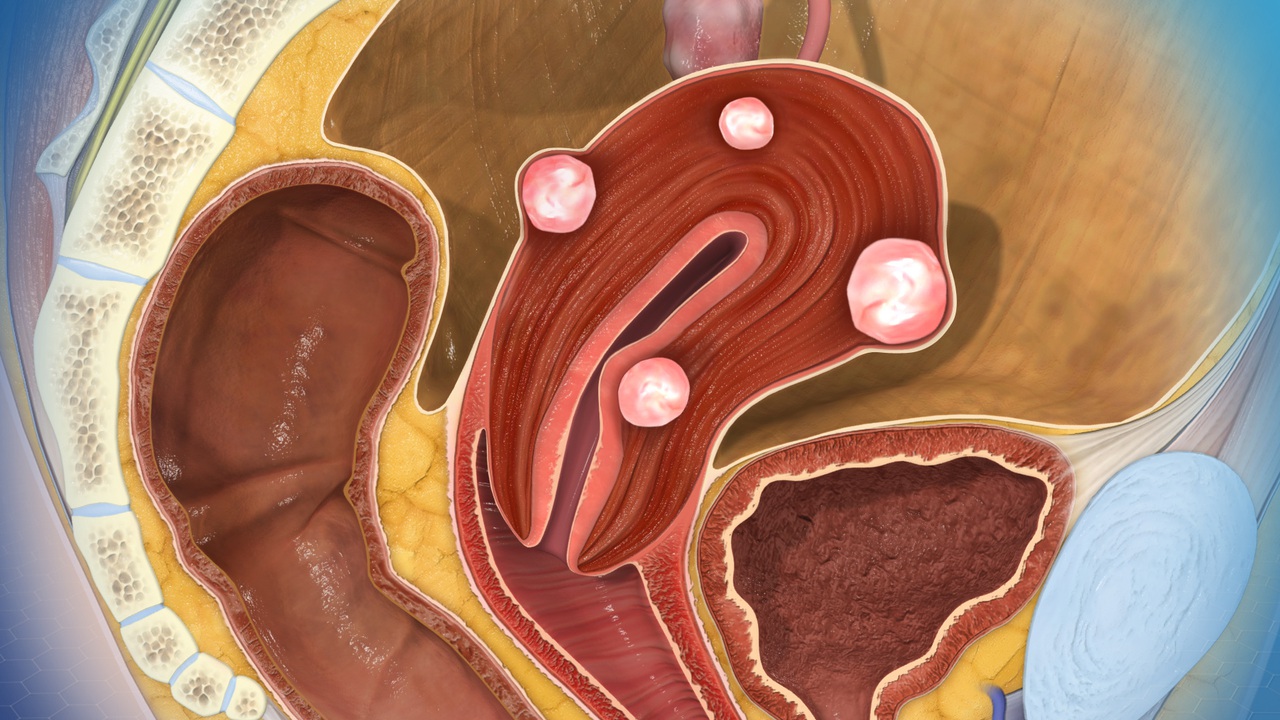Fibroids are abnormal growths in the uterus referred to as uterine fibroids that often appear during childbearing ages of 15–45 years.
Dr. Richard Katungye, Director Medical Services of the Special Forces Command (SFC) and a gynecologist at Victoria Medical Services Entebbe, says fibroids are an abnormal growth (BENIGN) tumor that is solid in nature and grows in the uterus. They are often non-cancerous, not associated with an increased risk of uterine cancer, and almost never develop into cancer.
“Many women have uterine fibroids during their lifetime but might not know because there may not be any symptoms, unless your doctor discovers them during a pelvic exam or prenatal ultrasound,” said Dr. Katungye.
The causes are not specific, but there are conditions that may increase the risk of developing fibroids.
Race: Black women are hit more by developing fibroids and are diagnosed three times as frequently as white women, with more severe symptoms, and also tend to experience them at a much younger age than their white counterparts. About 80% of black women will have them by the age of 50.
Inheritance: some fibroids develop as genetic mutations; many fibroids contain changes in genes that differ from those of typical uterine muscle cells. So if a grandma could be passed onto the mother, the daughters, and so on,
Obesity: people with a high body mass index (BMI) are at a higher risk of getting fibroids; if one is 20% over body weight, they should be extra careful; the chances of developing fibroids are high, though obesity itself alone may not contribute to fibroids.
Hormones: estrogen and progesterone, two hormones that stimulate the development of the uterine lining during each menstrual cycle in preparation for pregnancy, appear to promote the growth of fibroids.
High consumption of animal fat: if one’s diet is packed with a lot of animal fat and less fruits and greens, their chances of developing fibroids are high.
Dr.Katungye said symptoms of fibroids include: changes in the menstruation cycle, prolonged menstrual bleeding, from using normal pads to heavy pads or to using pampers due to heavy flow; painful periods with clots; bladder problems where the bladder is emptying more frequently; lower back pain; rectal pressure; and discomfort or pain during sexual intercourse.
“Due to excessive bleeding, one may get dizzy spells frequently, paleness, or lighting of the skin, and may need a blood transfusion,” Dr. Katungye said.
FERTILITY AND FIBROIDS
According to Dr. Herman’s American Fibroid Center, uterine fibroids can potentially cause infertility by blocking the fallopian tubes or stopping a fertilized egg from implanting in the uterus.
In addition, large fibroids may prevent a fetus from growing fully due to decreased space in the uterus.
- Fibroids may increase your risk of other complications during pregnancy and delivery. These include:
- Fetal growth restriction: large fibroids may prevent a fetus from growing fully due to decreased room in the womb.
- Placental abruption: this occurs when the placenta breaks away from the uterine wall because it’s blocked by the fibroid. This reduces vital oxygen and nutrients.
- Preterm delivery: pain from fibroids may lead to uterine contractions, which can result in an early delivery.
- Caesarean delivery: Women with fibroids are six times more likely to need a cesarean delivery than those without it.
- Breech position: because of the abnormal shape of the cavity, the baby may not be able to align for vaginal delivery.
- Miscarriage: the chances of a miscarriage are higher when one has fibroids.
However, Dr. Katungye says there are medical treatments for the symptoms.
- Drugs with iron supplements can be given to boost blood levels.
- Some drugs can be administered to promote clotting.
- Hormonal tablets can also be given to control and balance the hormones by suppressing them.
- Other medications given are for pain management, like ibuprofen, which helps with the pain and reduces bleeding slightly.
Dr. Katungye further suggests that if fibroids have not responded to the given drugs and are causing a lot of pain and discomfort, or if the doctor has assessed them and they are the cause of infertility, then surgery may be recommended.
- Open surgery: the cutting of skin and tissues so that the surgeon has a full view of the structures and visual of the fibroids.
- Pin-hole surgery: reducing the fibroid in laparoscopic surgery is a surgical procedure that allows a surgeon to access the inside of the abdomen (tummy) and pelvis without having to make large incisions in the skin.
- Robotic surgery is another example of key hole surgery that has enhanced precision and accuracy but more expensive and takes long operating hours.
- Ultrasound surgery uses high-frequency, high-energy sound waves to target and destroy uterine fibroids. Sonograms (pictures made by ultrasound) of the inside of the body are viewed on a computer to help a surgeon find tumors or other problems during the operation.
- Uterine fibroid embolization It’s a minimally invasive alternative performed instead of major surgery. In this procedure, the blood supply to the fibroid tumors is blocked, making them shrink.
“Fibroids contain more estrogen and progesterone receptors than typical uterine muscle cells do. Fibroids tend to shrink after menopause due to a decrease in hormone production,” said Dr. Katungye
Prevention of fibroids is possible, according to Dr. Katungye, through a change in one’s lifestyle through eating plenty of fruits and vegetables, exercising regularly, avoiding the use of oral estrogen contraceptives, and above all, having regular medical checkups at least once a year.
